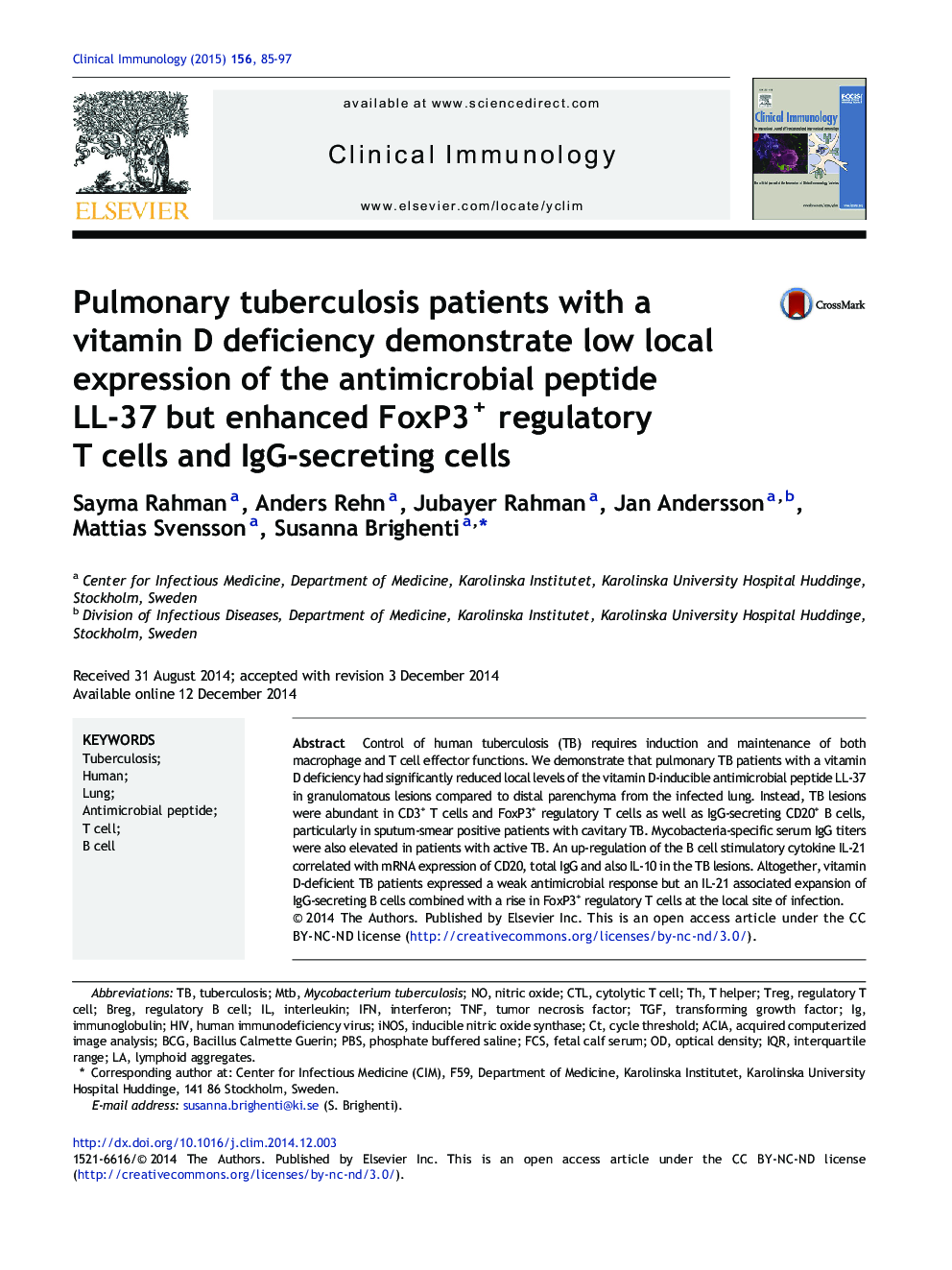| Article ID | Journal | Published Year | Pages | File Type |
|---|---|---|---|---|
| 6087382 | Clinical Immunology | 2015 | 13 Pages |
â¢Impaired local immunity in pulmonary TB patients with a vitamin D deficiency.â¢Low expression of the antimicrobial peptide LL-37 at the site of Mtb infection.â¢Abundant levels of FoxP3 + regulatory T cells and IgG-secreting cells in TB lesions.â¢Local expression of IL-21 and IL-10 correlates to an enhanced B cell response.â¢Low antimicrobial but up-regulated B and regulatory T cell responses in chronic TB.
Control of human tuberculosis (TB) requires induction and maintenance of both macrophage and T cell effector functions. We demonstrate that pulmonary TB patients with a vitamin D deficiency had significantly reduced local levels of the vitamin D-inducible antimicrobial peptide LL-37 in granulomatous lesions compared to distal parenchyma from the infected lung. Instead, TB lesions were abundant in CD3+ T cells and FoxP3+ regulatory T cells as well as IgG-secreting CD20+ B cells, particularly in sputum-smear positive patients with cavitary TB. Mycobacteria-specific serum IgG titers were also elevated in patients with active TB. An up-regulation of the B cell stimulatory cytokine IL-21 correlated with mRNA expression of CD20, total IgG and also IL-10 in the TB lesions. Altogether, vitamin D-deficient TB patients expressed a weak antimicrobial response but an IL-21 associated expansion of IgG-secreting B cells combined with a rise in FoxP3+ regulatory T cells at the local site of infection.
